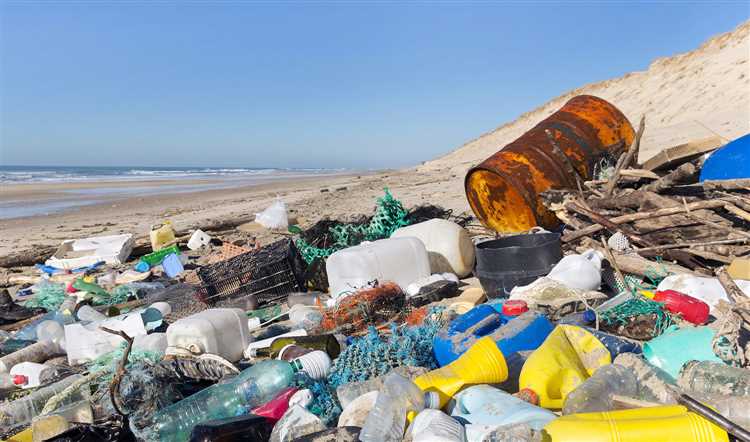
Plastic pollution in the oceans has reached crisis levels, causing significant harm to marine life and ecosystems worldwide. But who is responsible for this environmental disaster?
While it is easy to point fingers at individuals who litter or improper waste management systems, the truth is that the responsibility lies with a complex combination of factors.
First and foremost, the manufacturing and packaging industries bear a large share of the blame. The production of single-use plastics, such as plastic bags, bottles, and packaging, has skyrocketed in recent decades. These industries prioritize convenience and cost-effectiveness over environmental sustainability, leading to an excessive consumption and disposal of plastic products.
At the same time, consumers play a role in perpetuating plastic pollution. The demand for cheap, disposable goods encourages companies to continue producing large amounts of plastic. Many consumers are unaware of the long-lasting impact their choices have on the environment or lack access to affordable alternatives.
- Ocean Pollution: The Plastic Waste Crisis
- The Scope of the Problem
- The Causes of Plastic Pollution
- Global Consequences of Plastic Waste Pollution
- 1. Environmental Impact
- 2. Impact on Wildlife
- 3. Human Health Effects
- Industries and Plastic Waste: Examining Responsibility
- The fishing industry is another significant contributor to plastic waste in the ocean.
- The manufacturing industry also plays a significant role in the plastic pollution crisis.
- The Role of Governments in Curbing Plastic Waste
- 1. Legislation and Regulation
- 2. International Cooperation
- Individual Contribution: How Consumers Impact Plastic Pollution
- The Impact of Plastic Consumption
- Proper Waste Management
- Collaborative Solutions: NGOs and Their Efforts Against Plastic Waste
- 1. Education and Awareness
- 2. Policy Advocacy and Lobbying
- Q&A
- Who is responsible for polluting the ocean with plastic waste?
- How do individuals contribute to ocean pollution?
- What role do industries play in polluting the ocean with plastic waste?
- What can governments do to prevent plastic pollution in the ocean?
Ocean Pollution: The Plastic Waste Crisis
Ocean pollution has become a critical environmental issue in recent years, with plastic waste being one of the major contributors. The alarming rate at which plastic waste is entering the oceans has led to a crisis that requires urgent attention and action.
The Scope of the Problem
Plastic waste in the oceans has reached catastrophic levels, posing a significant threat to marine life, ecosystems, and human health. It is estimated that approximately 8 million metric tons of plastic enter the ocean every year. This plastic waste is not only visible on the surface but also accumulates in the deep sea, on the ocean floor, and along coastlines.
The impacts of plastic pollution are widespread and devastating. Marine animals often mistake plastic as food and consume it, leading to internal injuries, suffocation, and death. The ingestion of plastic by fish and other marine organisms can also find its way into the human food chain, posing potential health risks to humans.
The Causes of Plastic Pollution
The responsibility for polluting the ocean with plastic waste lies with various sources, including:
- 1. Single-use plastics: Disposable items such as plastic bags, bottles, and straws are significant contributors to ocean pollution. These items are often used for a short time but take hundreds of years to degrade.
- 2. Inadequate waste management: Insufficient waste management systems, especially in developing countries, result in plastic waste being improperly disposed of or not recycled.
- 3. Industrial discharges: Industrial activities release large amounts of plastic waste into water bodies, including rivers and oceans. This can occur through improper disposal of manufacturing byproducts or accidental spills.
- 4. Fishing gear: Abandoned, lost, or discarded fishing gear, also known as “ghost nets,” are a major source of plastic pollution in the oceans. These nets entangle marine animals, leading to injuries, entrapment, and death.
While individuals play a role in using and disposing of plastic responsibly, it is essential to recognize the systemic issues that contribute to plastic pollution. We need collaborative efforts from governments, industries, and individuals to address this crisis.
Global Consequences of Plastic Waste Pollution
Plastic waste pollution is a global problem with far-reaching consequences for the environment, wildlife, and human health. The excessive use and improper disposal of plastic products have led to the contamination of oceans, rivers, and land with plastic waste. This pollution is causing a wide range of negative effects that are felt on a global scale.
1. Environmental Impact
The accumulation of plastic waste in the environment has significant environmental consequences. Plastic debris often ends up in bodies of water, where it poses a threat to marine life. Marine animals can mistakenly ingest plastic or become entangled in it, leading to injuries, suffocation, and death. Additionally, plastics can release harmful chemicals into the environment, polluting soils and water sources.
The decomposition of plastic waste also contributes to climate change. Plastics can take thousands of years to break down, and as they degrade, they release greenhouse gases such as methane and ethylene. These gases contribute to the warming of the Earth’s atmosphere and exacerbate the effects of climate change.
2. Impact on Wildlife
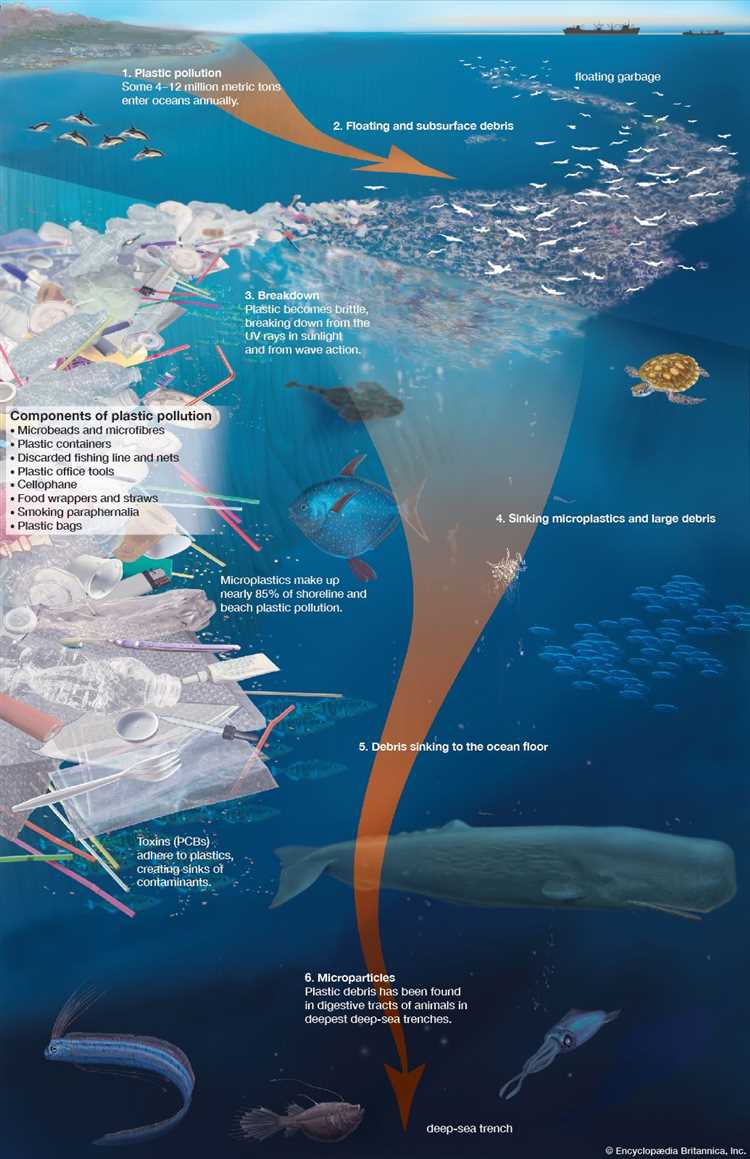
The pollution of the oceans with plastic waste has a devastating impact on marine wildlife. Animals such as seabirds, turtles, dolphins, and whales often mistake plastic debris for food and ingest it. This can lead to digestive blockages, malnutrition, and ultimately death. Plastic pollution also affects the reproductive success of certain marine species, as it can disrupt their natural habitats and food chains.
The problem extends beyond marine animals. Land animals, such as cows and sheep, can accidentally consume plastic waste that contaminates their grazing areas. This consumption can have negative health effects and even enter the human food chain through the consumption of animal products.
3. Human Health Effects
The impact of plastic waste pollution on human health is a growing concern. Microplastics, which are tiny particles resulting from the degradation of larger plastic debris, have been found in various food sources, drinking water, and even air. The ingestion of microplastics can lead to the accumulation of toxic chemicals in the body, potentially causing health problems such as hormonal disruptions, reproductive issues, and organ damage.
In addition, plastic waste pollution affects the livelihoods of communities that rely on fishing and tourism. The contamination of coastal areas with plastic debris can deter tourists and harm local economies. It also threatens the livelihoods of fishermen who rely on clean and healthy oceans for their income.
Overall, plastic waste pollution has severe global consequences, affecting the environment, wildlife, and human health. Addressing this issue requires collective action from individuals, governments, and industries to reduce plastic waste generation, improve recycling systems, and promote sustainable alternatives to single-use plastics.
Industries and Plastic Waste: Examining Responsibility
The issue of plastic waste in the ocean is a complex and multifaceted problem that demands a closer examination of the industries involved. Plastic pollution has become a global crisis, with millions of tons of plastic finding their way into the ocean every year. While it is true that individuals can contribute to this problem through improper waste disposal, it is important to recognize the significant role that industries play in contributing to the pollution.
One industry that bears a large responsibility for plastic waste in the ocean is the packaging industry. From food and beverage packaging to consumer products, the use of plastic is prevalent in the packaging materials. The convenience and durability of plastic make it an attractive choice for packaging, but its disposability and resistance to degradation make it a major contributor to ocean pollution. The packaging industry needs to take more responsibility by adopting sustainable packaging alternatives and promoting recycling initiatives.
The fishing industry is another significant contributor to plastic waste in the ocean.
Fishing gear, such as nets, lines, and traps, account for a substantial portion of marine plastic debris. These items are often lost, intentionally discarded, or abandoned at sea, leading to ghost fishing and entanglement of marine animals. The fishing industry should prioritize the use of biodegradable and eco-friendly fishing gear, as well as establish proper waste management practices to prevent further pollution of the ocean.
The manufacturing industry also plays a significant role in the plastic pollution crisis.
Many consumer products, such as electronics, appliances, and toys, are made from plastic. The manufacturing process and the disposal of plastic waste from these industries contribute to the overall plastic pollution in the ocean. It is crucial for manufacturers to invest in research and development of sustainable materials, as well as implement effective recycling programs to minimize the environmental impact of their products.
While individuals must also take responsibility for their own actions and strive to reduce plastic waste, it is clear that industries have a significant role to play in addressing the pollution crisis. By adopting more sustainable practices, investing in research and development of alternatives, and promoting responsible waste management, industries can contribute to the solution and help mitigate the impact of plastic waste on the ocean.
The Role of Governments in Curbing Plastic Waste
Governments play a crucial role in addressing and mitigating the issue of plastic waste pollution in our oceans. With their power to implement laws, regulations, and policies, governments have the ability to significantly reduce the amount of plastic waste that enters the ocean and protect the environment for future generations.
1. Legislation and Regulation
One of the primary responsibilities of governments is to enact legislation and regulations that promote the reduction, recycling, and proper disposal of plastic waste. By imposing bans or restrictions on single-use plastics, such as plastic bags and straws, governments can encourage the adoption of more sustainable alternatives and reduce the overall amount of plastic waste generated.
Furthermore, governments can introduce extended producer responsibility (EPR) programs, which hold manufacturers accountable for the entire lifecycle of their products, including the management of plastic waste. By implementing EPR programs, governments can incentivize manufacturers to design more eco-friendly packaging and take responsibility for the collection and recycling of their products.
2. International Cooperation
Addressing the issue of plastic waste pollution requires international cooperation and collaboration. Governments have the opportunity to participate in global initiatives and agreements aimed at reducing plastic waste, such as the United Nations Environment Programme’s Clean Seas Campaign or the Basel Convention on the Control of Transboundary Movements of Hazardous Wastes and Their Disposal.
Through international cooperation, governments can share knowledge, best practices, and innovations in plastic waste management, working together to develop effective strategies and solutions. By joining forces, governments can make a collective impact on reducing plastic waste and protecting the health of our oceans.
3. Education and Awareness
In addition to legislation and international cooperation, governments play a vital role in raising awareness about the environmental consequences of plastic waste pollution. Through educational campaigns and public outreach initiatives, governments can educate individuals and communities about the importance of reducing plastic consumption, proper waste disposal, and recycling.
By fostering a culture of environmental consciousness and responsibility, governments can empower citizens to make more sustainable choices and actively participate in efforts to curb plastic waste. Education is key to changing behaviors and attitudes towards plastic consumption, ultimately leading to a significant reduction in plastic waste pollution.
In conclusion, governments have a significant role to play in curbing plastic waste pollution. Through legislation, regulation, international cooperation, and education, governments can take proactive steps towards reducing the amount of plastic waste that enters our oceans and ensure a sustainable future for all.
Individual Contribution: How Consumers Impact Plastic Pollution
Plastic pollution in the ocean is a global problem that continues to worsen, and consumers play a significant role in this issue. While large corporations and industries contribute to plastic waste, individuals also have a responsibility to reduce their plastic consumption and properly manage their waste.
The Impact of Plastic Consumption
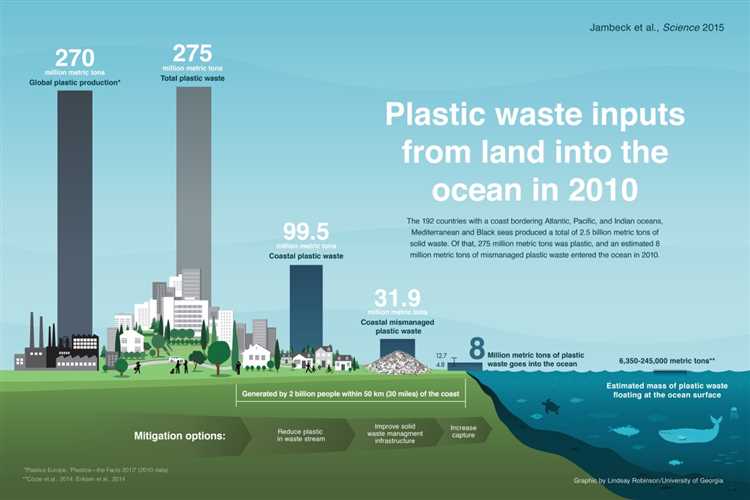
Consumer behavior and choices greatly influence the amount of plastic waste generated. Single-use plastic items such as water bottles, straws, and food packaging are commonly used and disposed of without much thought. These items often end up in the ocean, contributing to the growing problem of plastic pollution. By reducing our consumption of these single-use items and opting for reusable alternatives, individuals can make a positive impact on the environment.
Additionally, consumers can support businesses that prioritize sustainable packaging and products. By opting for products with minimal packaging or packaging made from recycled materials, consumers can send a message to companies that they value eco-friendly practices. This can encourage more businesses to adopt sustainable practices and reduce their overall plastic waste.
Proper Waste Management
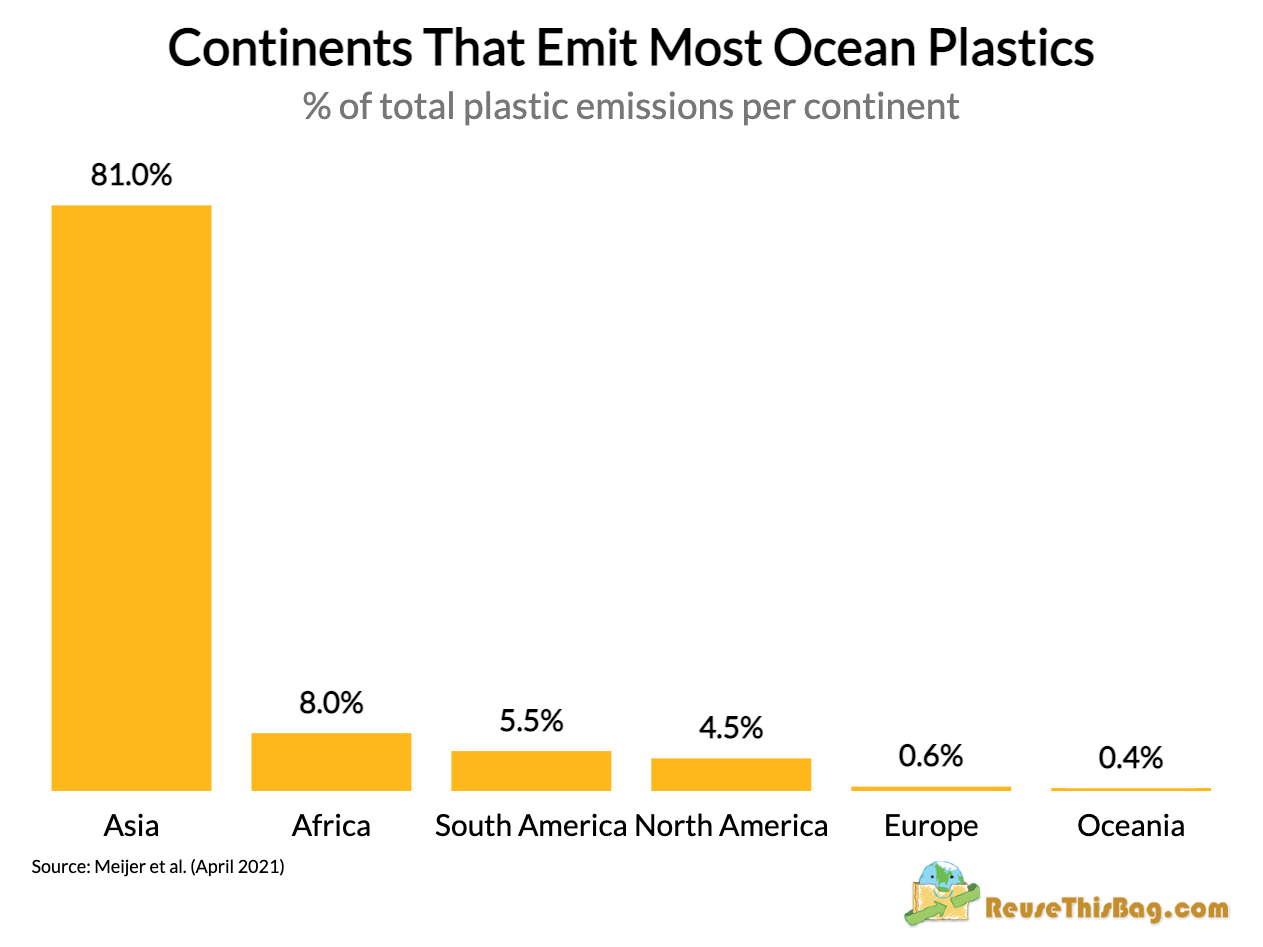
Proper waste management is crucial in preventing plastic pollution. Many individuals are unaware of the proper methods for disposing of plastic waste, which often leads to improper disposal and ultimately ends up in the ocean. By understanding local recycling programs and guidelines, consumers can ensure that their plastic waste is being properly recycled and not contributing to pollution.
In addition to recycling, individuals can also reduce plastic pollution by participating in beach clean-up initiatives and promoting community awareness. By taking action and organizing or joining beach clean-ups, consumers can help remove plastic waste from the ocean and spread awareness about the issue. Through education and community involvement, individuals can encourage others to adopt more sustainable practices and reduce plastic pollution.
In conclusion, consumers have a significant impact on plastic pollution in the ocean. By reducing plastic consumption and properly managing plastic waste, individuals can contribute to the solution of this global problem. Through conscious choices and actions, consumers can make a positive difference and help protect the health of our oceans.
Collaborative Solutions: NGOs and Their Efforts Against Plastic Waste
Plastic pollution in the ocean is an urgent and complex problem that requires a collaborative effort from various stakeholders to address it effectively. Non-governmental organizations (NGOs) have played a significant role in addressing the issue of plastic waste in the ocean and working towards finding sustainable solutions.
1. Education and Awareness
NGOs have been proactive in educating the public about the harmful effects of plastic pollution and raising awareness about the importance of reducing, reusing, and recycling plastic products. They conduct educational programs, workshops, and campaigns to highlight the impact of plastic waste on marine life, ecosystems, and human health.
2. Policy Advocacy and Lobbying
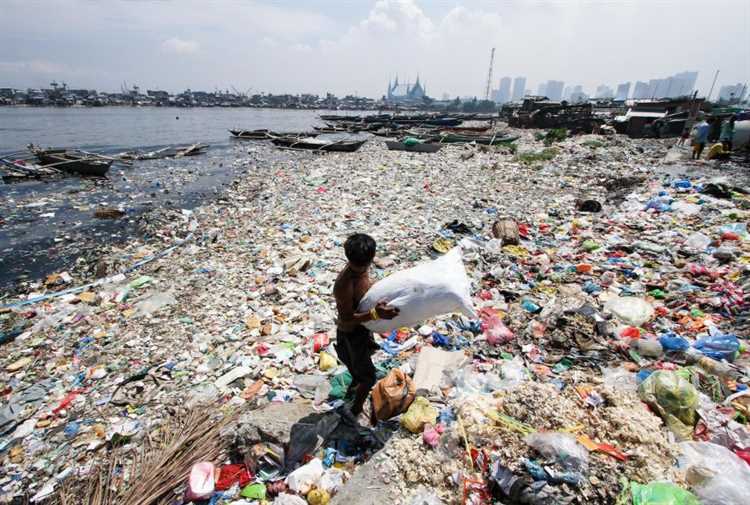
NGOs work towards influencing policymakers to formulate and implement effective regulations and policies to reduce plastic waste. They engage in lobbying efforts, policy research, and advocacy campaigns to create a conducive environment for sustainable waste management practices. NGOs also collaborate with governments and international organizations to develop global frameworks and initiatives addressing plastic pollution in the ocean.
| NGO | Focus Areas |
|---|---|
| Ocean Conservancy | Campaigns for ocean-friendly policies and conducts beach cleanups. |
| Plastic Oceans International | Raises awareness through documentaries, educational programs, and policy advocacy. |
| 5 Gyres | Researches plastic pollution, conducts cleanups, and advocates for policy changes. |
These NGOs, along with many others, have been working tirelessly to combat plastic waste and its detrimental effects on the ocean. Their collaborative efforts have significantly contributed to raising public awareness, promoting policy changes, and fostering a global movement against plastic pollution.
It is through the collective efforts of NGOs, governments, businesses, and individuals that we can tackle the issue of plastic waste in the ocean and create a sustainable future for our planet.
Q&A
Who is responsible for polluting the ocean with plastic waste?
Multiple parties are responsible for polluting the ocean with plastic waste. These include individuals, industries, and governments. Individuals contribute to ocean pollution through improper disposal of plastic waste, such as littering or not recycling. Industries, especially those involved in the production and packaging of single-use plastics, also play a significant role. Governments are responsible for implementing and enforcing regulations to prevent plastic pollution and promote sustainable practices.
How do individuals contribute to ocean pollution?
Individuals contribute to ocean pollution through various actions. One of the most common ways is improper disposal of plastic waste, such as throwing plastic bottles or bags into water bodies. Littering on beaches or riversides is also a significant contributor. Additionally, not recycling plastic waste and using single-use plastics excessively further exacerbates the problem.
What role do industries play in polluting the ocean with plastic waste?
Industries, especially those involved in the production and packaging of single-use plastics, play a significant role in polluting the ocean with plastic waste. The production of single-use plastics contributes to the overall plastic waste generation. Improper disposal practices by industries, such as the negligent handling of plastic waste or inadequate recycling infrastructure, also contribute to ocean pollution.
What can governments do to prevent plastic pollution in the ocean?
Governments can take several actions to prevent plastic pollution in the ocean. They can implement and enforce strict regulations on the production, use, and disposal of plastic products. This could include banning or imposing taxes on single-use plastics, promoting sustainable packaging alternatives, and incentivizing recycling. Additionally, governments can invest in the development of recycling infrastructure, raise public awareness about the impact of plastic pollution, and support research and innovation for plastic waste management.